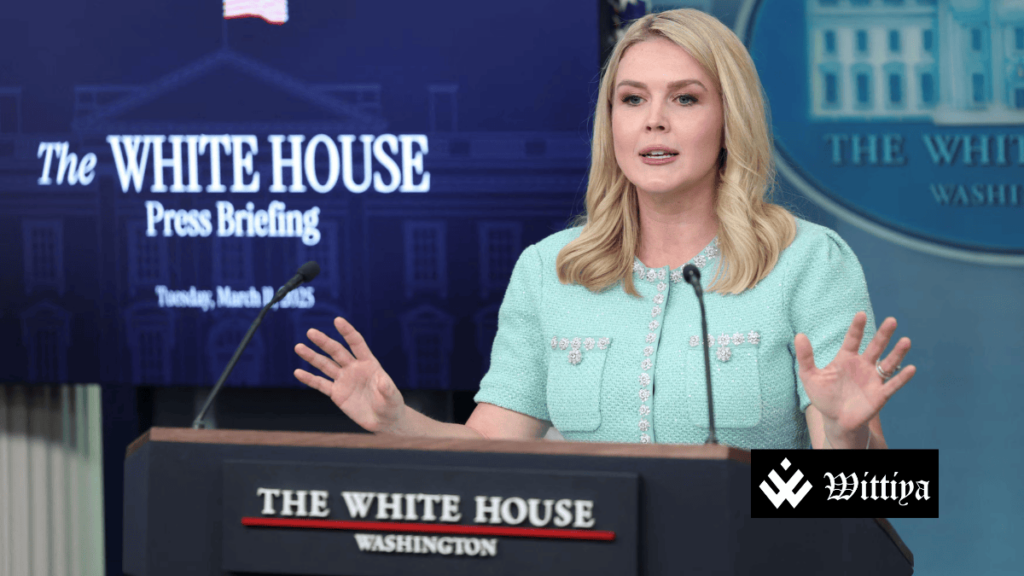The White House has raised concerns over India’s recent tariff hikes, including a 150% duty on American alcohol and a 100% tariff on agricultural goods. The US claims these measures hurt American exporters, with President Trump hinting at possible retaliatory action.
The White House has strongly criticized India’s latest tariff increases on American imports, stating that they undermine fair trade practices. According to White House Press Secretary Karoline Leavitt, India has imposed a 150% tariff on American alcohol and a 100% tariff on agricultural goods, significantly affecting US exporters.
The criticism follows broader concerns over tariff imbalances, with the US also pointing fingers at Canada and Japan for their trade barriers. The US administration argues that these tariffs make it difficult for American products to compete in India’s market, impacting industries such as alcohol and agriculture.
US Concerns Over Trade Imbalance
The White House expressed frustration over what it perceives as one-sided trade policies.
You look at India, 150% tariff on American alcohol. Do you think that’s helping Kentucky bourbon be exported into India? I don’t think so. 100% tariff on agricultural products.”
Karoline Leavitt, White House Press Secretary
President Donald Trump has hinted at potential countermeasures, stating that countries like India have long taken advantage of the US economy. However, he also claimed that India has agreed to lower tariffs following US scrutiny, though there has been no official confirmation from Indian authorities.
India’s Trade Policies and Future Outlook
India, known for its protective trade policies, has previously defended such tariff structures as a means to support domestic industries and balance trade deficits. However, with increasing pressure from Washington, it remains to be seen whether the Indian government will reconsider its stance.
The situation adds to ongoing global trade tensions, with both India and the US facing key trade negotiations in the coming months. American businesses, particularly in the alcohol and agricultural sectors, are closely watching how this dispute unfolds.



